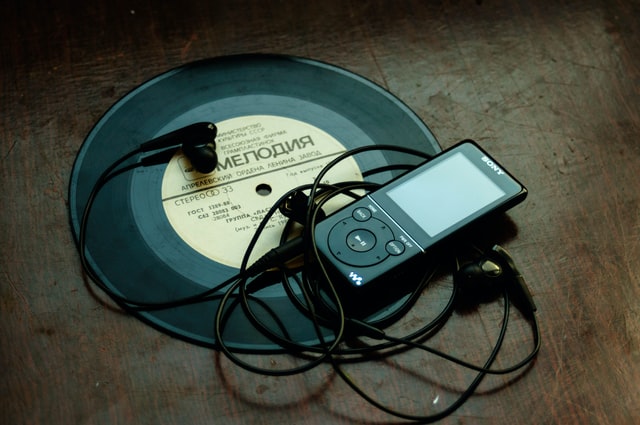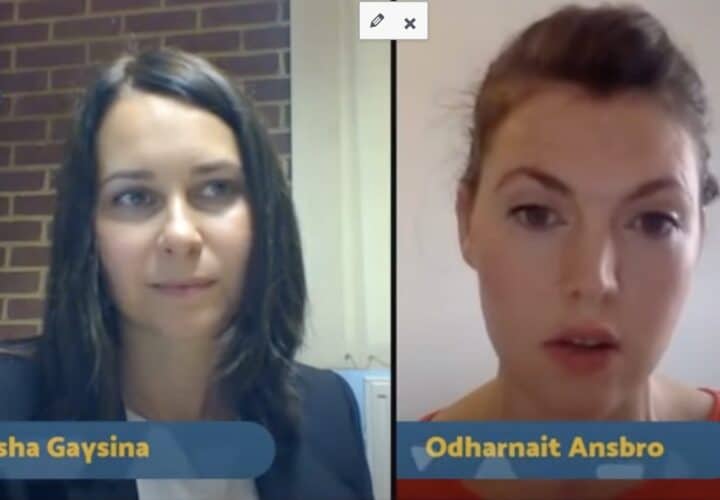Dealing with an Alzheimer’s diagnosis can be challenging, both for the person diagnosed and for their loved ones. Eugenia Zukerman, an accomplished flutist and writer, chose to tackle her diagnosis through poetry.
- Eugenia was diagnosed at the age of 72 with Alzheimer’s.
- She is an internationally renowned flutist, a former correspondent for CBS News Sunday Morning and the author of multiple novels, screenplays and book reviews.
- Her latest book, “Like Falling Through a Cloud,” is a collection of poetry about her experiences and perspectives following her Alzheimer’s diagnosis.
Being Patient spoke with Zukerman about how her poetry has helped her to better understand her own journey with the disease — and to inspire others.
Noticing the First Signs of Alzheimer’s
Being Patient: Tell us when you noticed that things were wrong.
Eugenia Zukerman: Well, I’ve always had multiple things that I’m doing at the same time, and I didn’t really notice much. It was my daughters who said to me, “You’re not making a lot of sense,” and I would “Oh, that doesn’t matter.” And it kept going to the point where my daughter said, “I’m going to take you and you’re going to be tested.”
So, we got into the subway, went uptown, and indeed I was tested. And I was very surprised at the results, because it turned out that indeed I had the early Alzheimer’s signals. So I went through the series of tests, and I’m probably one of the only people you might know who enjoyed having the CAT scan because I loved the music.
So there was no fear in this, and my daughter and I got back into the subway laughing our way back to our places in the city. I went up into my apartment, I sat down at my desk, and I stared at the wall for quite a long time. And then for some reason I picked up paper and pencil and started writing. And that was so important to me that I write down what happened after.
Being Patient: Before the tests, before you noticed anything was wrong, what were your daughters seeing?
Eugenia Zukerman: I have two daughters, and they both sort of ganged up on me, in the most loving way, because I had no idea that I wasn’t making sense, that I wasn’t where I had been in the past. I thought it was just that I was doing so many things that of course I’m going to get confused about things. But it was obviously very clear to me after I had been tested that something was going on, and for some reason I was not afraid of it. I suppose that sitting down and writing was my way to understand it.
Exploring Alzheimer’s Through Poetry
Marbles/Maybe mine are lost, or maybe they’re rolling around in my head, looking for a place to land. Or maybe not/My daughters tell me to get tested/Tested for what, I ask, even though I know for what/But it’s for what I don’t want to know, so I let the marbles roll around in a swirl of distracting colors, because I don’t want to listen to them, the daughters, because if I hear them I will be very afraid/And this mother, cannot be that mother. Not ever. Never.
Being Patient: That’s beautiful. And when did you write this? Right after the diagnosis?
Eugenia Zukerman: I think it was, yes. I was suddenly aware that woah, this was something I had to deal with, and I needed to find a way to absorb it. Strangely, I did not feel angry, I just felt that this was happening. I think it was some kind of wonderful gift that I was able to write about it, and I don’t know why but it was mostly in verse. After I had written about 25 pages, I asked my younger daughter to read it and said, “I don’t know what this is,” and she read it and said, “Mom, this is really good, keeping going.”
And I kept going, and it was an extraordinary experience to find out more about myself and how this works and what might be it might be in the future. And I’m amazed and grateful for the wonderful reception it has received and continues to receive.
Being Patient: We know that Alzheimer’s impacts people in different ways, but it seems like you haven’t lost the ability to express yourself, have you?
Eugenia Zukerman: I don’t think so. I do forget words and blank out on what I was thinking, but I was just able to move forward. The writing was a great gift to me, because somehow it gave me a great deal of comfort. I am a writer as well, I’ve written six books before, but this was an extraordinary thing that happened. I hadn’t decided to write in verse, it just happened, so I kind of think of it as magical.
Being Patient: You’re so expressive with your poetry in what I want to say is kind of a joyful way, is that how you see it?
Eugenia Zukerman: I don’t know whether it’s joyful, I just know that I feel very lucky that I was able to write, and that I was able to write in a very funny way and a self-mocking way. There would be nothing worse for me to have done than to come home and call my friends going “Oh woe is me; how will I manage?” I gave that up immediately.
And yes, as I’m entering into the fourth year of early Alzheimer’s I feel very lucky and very grateful to go and talk about it to people who have the disease and want to hear someone who is going through it and who has been able to somehow get through in a way that is helpful for me and, I’m told, is helpful for others.
Maintaining a Positive Approach
Being Patient: Most people are devastated when they have a diagnosis, but you seem to have handled the initial shock well. How have you been able to cope so well?
Eugenia Zukerman: You know, I’m not sure. All I know is that I sat at my desk and stared at the wall, and something magical happened. I have very real recollection of that moment, and it was a moment of two things: sheer panic, and knowing that I was going on an adventure.
I knew that I wasn’t going to die the next day, I knew very little about this disease, and I just took it as I could. I also have the most wonderful husband who has been so helpful, and my children and friends, and my dogs and cat and horses. So I feel very normal and there’s a normalcy about it, it’s just not the normalcy that I used to have. I wonder if I could read another poem just about that point.
Words: they taunt me, tease me, test me when I fail to find them/I know they’re hiding, somewhere in the dark realm of my cerebellum/floating around, mocking, sneering, shouting “Catch me,” “Remember me,” “Speak me!”/Sometimes it’s wise to wait, wait for one word/for the kernel of the word to explode like popcorn and leap onto my tongue, bringing others with it, stringing a sentence together for me to speak/And I say it, all the words in the right order, spilling out of my mouth/ And my brain asks me, “Okay, was that so freaking hard?”
Being Patient: Is there anything you fear about this disease?
Eugenia Zukerman: I don’t, I don’t have any fear about it, the disease. I have more of a fear for the people I’ll leave behind. From what I hear, from other families, the difficulty in living with someone with Alzheimer’s is a kind of sticky dance that they do back and forward. “Let’s see what she’s going to be like today,” “Oh, maybe I should take her to the movies because maybe that would be good for her.”
I didn’t have much need to be taken care of before, and maybe that’s what made it feel like I wasn’t a burden on my family. I feel so lucky to be close to my daughters and to my friends, and it helps enormously if I can’t remember someone’s name I’m at the point where I pick someone else out and say, “Hey, that guy I used to know who lived there, do you remember his name?” I mean I’m not shy about trying to find help if I need it.
I had an eye opener when doing some public speaking for some book tours. We talked about how difficult it is to have someone in the family who has Alzheimer’s or dementia, and I felt so wonderful when one of the people who came back stage, a very elegant fellow, said to me that his family didn’t really understand what was going on, but that after hearing what I had said he could go back and tell them and make it easier for them to help him understand his thoughts. So that was a wonderful, wonderful gift to me, to hear someone say that. And I would love to end on one final poem related to that.
A Super Sunny Sunday
Almost August, and the tomatoes are bulging on their vines/The flowers continue to burst toward the sky in colors that astound, while on the ground our once-hardy kale has been ripped out by rabbits who attack at dawn and are gone in a flash, leaving the crop tattered and torn/Nothing lasts forever; not kale, or tomatoes, or cucumbers, or the glorious flowers that fill our fields, or the people we adore/And though I know my days are numbered, I feel unencumbered by thoughts of my demise/I do not embrace my inevitable decline, but I’m determined to find a way to make the rest of my stay, on this problematic planet, filled with light and love and music/As for the dear suit I promised to don, I don’t think I’ll put it on/Not now, not yet/I’m not ready, I feel steady, and I have a strategy to keep on keeping on, which is simple: wake up, fetch the flute, give thanks for another day, and then play on, play on, play on.
Edited for clarity



